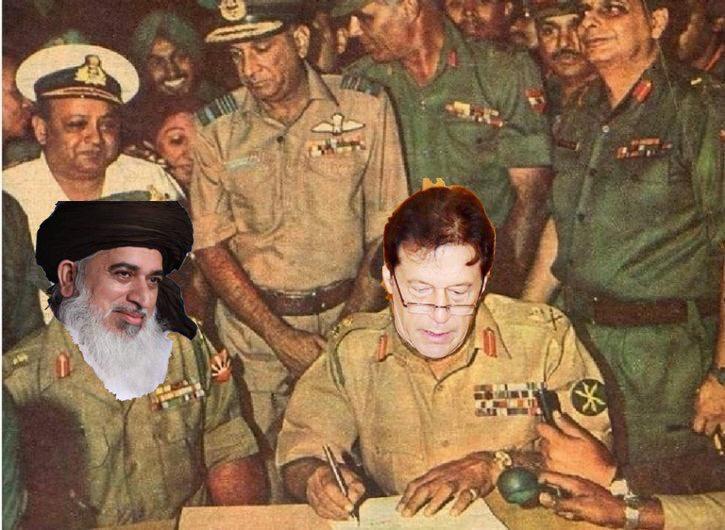
The jubilation felt by many liberal and progressive Pakistanis and others around the world at the acquittal of Asia Bibi by the Supreme Court of Pakistan was shortlived. The monsters created and nurtured by our Deep state came back to bite us immediately and we had to witness the surrender, once again, of state authority before the Tehreek Labbaik Pakistan (TLP) of Barelwi cleric, Khadim Hussain Rizvi. 

According to Raza Rumi, Editor of The Daily Times, the “cost of nurturing religious extremists is way too high” and warning signs are here for those who are watching and listening.
In his latest piece, Cyrial Almeida, asserts that what we are witnessing today is not a state that is colluding with extremists but one that is on the defensive and cannot do anything. “The state is on the defensive and the extremist is in the ascendant. The two are linked — even though the extremist/ terrorist/ militant is of different stripes and sects and often at war with each other. The state as colluder everyone is more or less familiar with, but since 2001-2004 the state’s defensiveness has taken a new turn.” 

We witnessed this in the recent protests led by the TLP that started immediately after the verdict was announced. “The protests were violent in nature and attacked the Army chief while asking other generals to step in. Worse, the judges were threatened and one of the leading clerics asked the domestic staff working with the judges to kill them!”
The second day of protests, road blockades, and violence “ended with an agreement with the TLP assuring the protestors that a review petition would not be opposed and that legal action would be initiated to place Asia Bibi’s name on the Exit Control List (ECL). The latter point of agreement was not just bizarre but blatantly illegal. For how can citizens be barred from leaving the country when there is no case against them? In fact, by placating extremist passions, the state of Pakistan has even overlooked the grave threat that the [majoritarian] sectarian mobilisation now poses. In other words, a non-Muslim Pakistani even when acquitted by the highest court must face the mobs.”
As Rumi points out, “The TLP is a force to reckon with for it enjoys a much wider support base and the majority of Sunni Muslims in Pakistan adhere to the Barelvi subsect. And blasphemy is an emotive issue that also fits into the larger narrative of global Muslim injury by the West.”
This is not the first time that a militant Barelwi organization has brought a government to a standstill. In November 2017, “it prevailed in inserting the Khatam-e-Nabuwwat issue in the election campaign. Because the PMLN government had hanged Mumtaz Qadri, the murderer of the former Governor of the Punjab, it found itself on the back-foot.”
TLP’s power has grown since the July 2018 elections when, “the TLP managed to reduce the PMLN majority by 10-20 seats; participating in the polls and securing two provincial seats. Moreover, it bagged more than 2.2 million votes to emerge as the third largest electoral force in the Punjab. Even bigger than the mainstream PPP; which was once a popular in the province.”
As an Editorial in Dawn stated, “Pakistan, it would seem, was a country with no real leadership while chaos and anarchy spread in the streets once again. The repercussions could quickly manifest themselves in the days ahead.”
![]()





